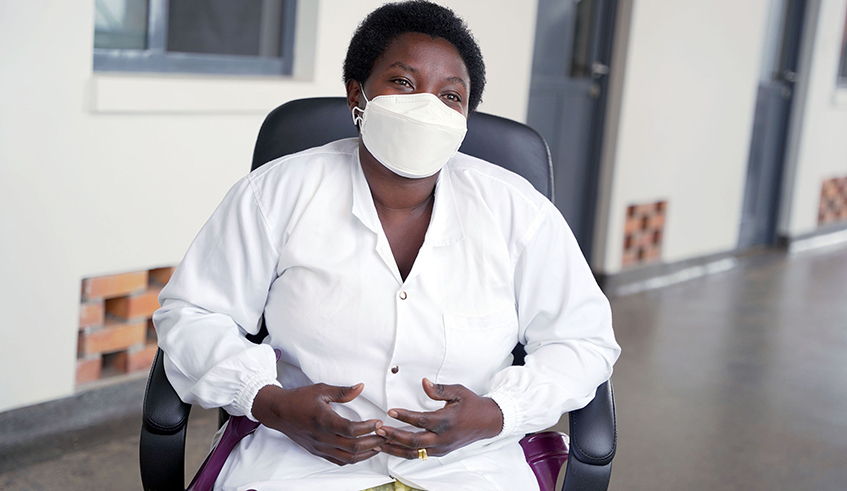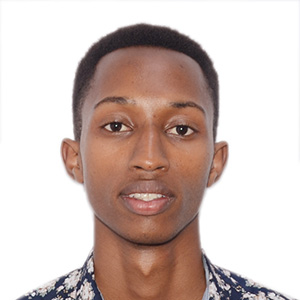Nyirangarukiyintwali: Not even disability could stop her from playing her frontline role against Covid-19

Annoncu00e9e Nyirangarukiyintwali, one of the frontline workers in the ongoing fight against Covid-19. / Photo: Oliver Mugwiza.

